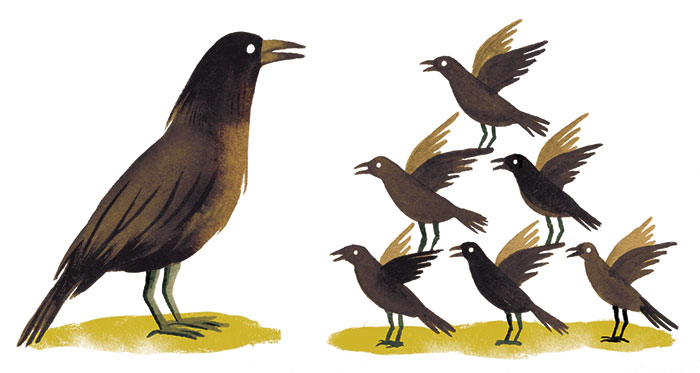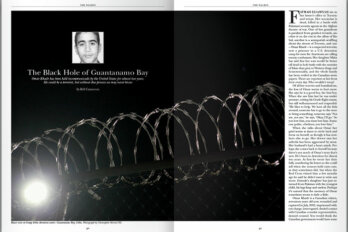
An irony of our time is that while fewer of us participate in the electoral process (in the last federal election, only two-thirds of eligible voters exercised their franchise), we are more than willing to declare ourselves on so much else. It seems there is nothing we won’t submit to a ballot: aspiring pop stars, novels, centre fielders—some of us even vote for our favourite university professors. A few years ago, CBC invited viewers to choose the greatest Canadian. Happily, the winner was Tommy Douglas, the father of medicare, although it’s worth noting that Don Cherry received more votes than Sir John A. Macdonald. A people’s choice award was once a consolation prize for not winning something more estimable, like an Oscar or an Emmy, but in the age of Facebook and Twitter popularity rules.
This egalitarian impulse is the cultural assertion of the neo-liberal belief—itself increasingly popular—that the market should determine nearly anything. But more alarming is the flip side: a growing disrespect for knowledge and expertise. In contemporary North America, one person’s opinion is as good as the next, no matter how uninformed. Case in point: Zagat, the influential restaurant guide founded by New Yorkers Tim and Nina Zagat in the ’80s. Zagat does not employ experts like New York magazine’s Adam Platt to rate a city’s restaurants; instead, it compiles its rankings from reviews by people like you and me. Nor does the company make any apology for this. On the contrary, it says it’s “proud to give consumers a voice to express their opinions.”
The widespread public expression of uninformed opinion has been facilitated by an increase in polling, the advent of the blogosphere, and cable television, which thrives on argument (the more heated the better) and is not particularly fussy about the credentials of the antagonists. Thus the learned climatologist is accorded equal time with the evangelical creationist in the debate on global warming. But all of the media are complicit, especially in these hard economic times. You may have noticed, for instance, an increase in “man-in-the-street” interviews, or “streeters,” as they’re called, where people who may not know what they are talking about are asked to comment on issues of the day. Streeters are for the most part meaningless, but they fill time and space—and they’re cheap.
In a speech last fall at a Trudeau Foundation conference in Edmonton (the theme was “The Common Good: Who Decides? ”), Michael Ignatieff observed that in a democratic society knowledge and expertise enjoy no privilege. This, he said, is as it should be, and I agree. In a democracy, the voters decide. But surely knowledge and expertise are beneficial, if not essential, in formulating the policies voters choose or choose not to endorse. And wouldn’t it follow that a society that undervalues knowledge and expertise will more likely make decisions it will regret? Indeed, when a society places what is popular ahead of what is smart, wouldn’t such decisions be inevitable? The current government’s determination to proceed with building new prisons in the face of opposition from criminologists (that is, people with expertise) comes to mind.
In thinking about such questions, I sometimes find it useful to be reductive. Imagine a village facing a health crisis—avian flu, say. Fortunately, the village has a doctor. Unfortunately, it’s a village that disrespects knowledge and expertise, and his or her advice will go unheard or, worse, be ignored. The story will end badly. So, no, we can’t legislate respect for knowledge and expertise, but we can encourage it. We can teach our children that knowledge matters, that opinions are not necessarily equal, and that the most popular course of action is not always the best one. We can also be more deliberate—as Ignatieff notes our American neighbours are—about integrating members of the academy, society’s stewards of knowledge and expertise, into the process of policy creation. Canadians would be better served if McGill had as great a presence in Ottawa as Stanford has in Washington.
This appeared in the March 2013 issue.





